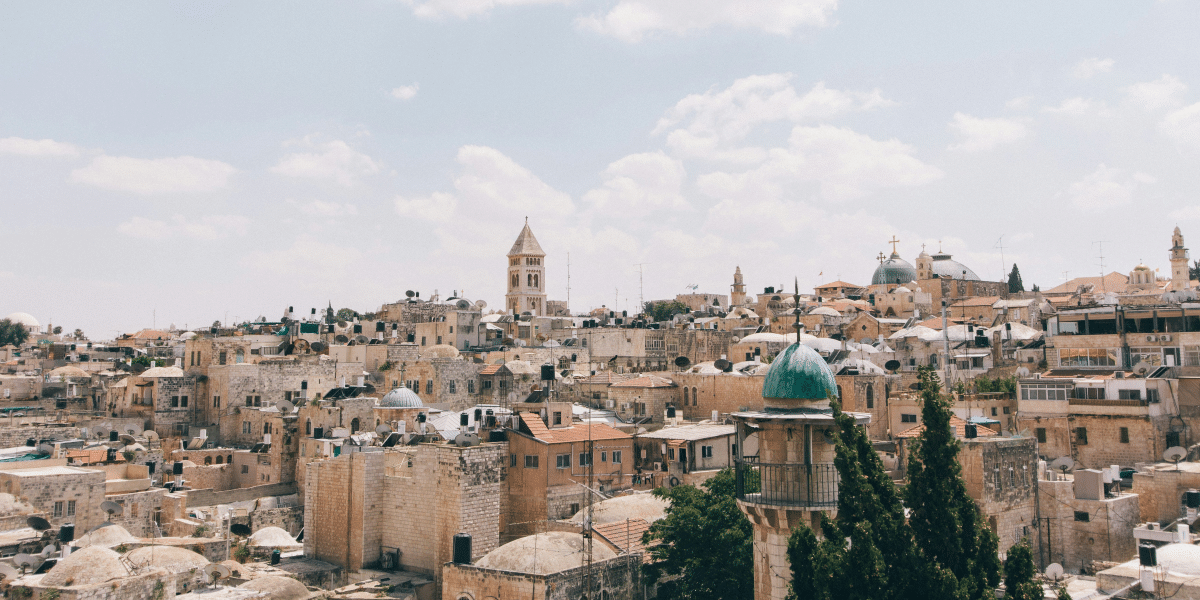Jerusalem stands as one of the most revered cities in the world, a site of immense historical, cultural, and religious significance. This ancient city holds a unique place in the hearts of millions of people around the globe, particularly for followers of Judaism, Christianity, and Islam. Each of these Abrahamic religions lays claim to Jerusalem’s sacred spaces, making the city a focal point of faith and devotion.
Jerusalem in Judaism
For Judaism, Jerusalem is the holiest city, deeply intertwined with Jewish identity and history. The city’s significance dates back to the times of King David, who established it as the capital of the united Kingdom of Israel around 1000 BCE. His son, King Solomon, built the First Temple, which became the central place of worship for the Jewish people.
The Western Wall, or Kotel, is a remnant of the Second Temple and is considered the most sacred site in Judaism today. Jews from around the world travel to Jerusalem to pray at the Wall, inserting written prayers into its crevices. The Wall serves as a symbol of Jewish endurance, faith, and a connection to the divine.
Jerusalem also hosts numerous yeshivas, or Jewish educational institutions, where students immerse themselves in the study of Torah and Talmud. The city’s ancient synagogues and archaeological sites offer a tangible link to the Jewish past, providing context and continuity to millennia of Jewish existence.
Jerusalem in Christianity
Christianity venerates Jerusalem as the site of pivotal events in the life of Jesus Christ. The city is home to the Church of the Holy Sepulchre, traditionally believed to be the site of Jesus’ crucifixion, burial, and resurrection. This sacred church attracts thousands of pilgrims each year, particularly during Holy Week and Easter.
The Via Dolorosa, or Way of Suffering, is another significant pilgrimage route in Jerusalem. It follows the path that Jesus is believed to have walked on his way to the crucifixion, with the Stations of the Cross marking key events along the journey. Pilgrims often walk this route, reflecting on the suffering and sacrifice of Jesus.
The Mount of Olives, which overlooks the Old City, is another critical site. It is associated with Jesus’ ascension into heaven and contains the Garden of Gethsemane, where Jesus prayed before his arrest. The Mount also offers a panoramic view of Jerusalem, highlighting the city’s unique blend of the ancient and the modern.
Christian communities, including Greek Orthodox, Armenian, Coptic, and Ethiopian Christians, have maintained a continuous presence in Jerusalem for centuries. Their monasteries, churches, and schools contribute to the city’s rich tapestry of religious life and practice.
Jerusalem in Islam
For Muslims, Jerusalem is the third holiest city after Mecca and Medina. It is home to the Al-Aqsa Mosque and the Dome of the Rock, both located on the Haram al-Sharif, or Noble Sanctuary. The Dome of the Rock is particularly significant as it marks the spot from which Prophet Muhammad is believed to have ascended to heaven during the Night Journey.
The Al-Aqsa Mosque is a vital place of worship for Muslims, and its importance is emphasized in Islamic tradition and scripture. The mosque’s name, which means “the farthest,” signifies its status as a distant sanctuary of great spiritual importance. Muslims around the world face Mecca during their daily prayers, but Jerusalem remains deeply embedded in their religious consciousness.
The history of Islamic rule in Jerusalem began in 638 CE when Caliph Umar ibn al-Khattab captured the city. Since then, various Islamic dynasties, including the Umayyads, Abbasids, Fatimids, and Ottomans, have left their mark on Jerusalem’s architecture, culture, and religious life.
Jerusalem Today
In contemporary times, Jerusalem remains a city of profound religious significance and a focal point for interfaith dialogue and understanding. However, it is also a city marked by political complexity and conflict. The competing religious claims to Jerusalem have often intersected with geopolitical struggles, making the city’s status a contentious issue in the Israeli-Palestinian conflict.
Efforts to promote peace and coexistence in Jerusalem are ongoing, with various organizations and initiatives working towards mutual respect and understanding among the city’s diverse religious communities. Interfaith dialogues and cultural exchanges aim to bridge the divisions and highlight the shared heritage that Jerusalem represents.
For those interested in exploring the city’s religious heritage, Israel christian tours offer an opportunity to immerse oneself in the sacred landscapes and historical narratives of Jerusalem. These tours provide a comprehensive experience of the city’s holy sites, offering insights into the religious traditions that have shaped Jerusalem’s identity over millennia.
In conclusion, Jerusalem’s significance as a holy city transcends individual religious traditions, embodying a shared spiritual heritage that resonates with millions around the world. Its sacred spaces and historical landmarks continue to inspire faith, devotion, and a sense of connection to the divine, making Jerusalem a timeless beacon of religious and cultural significance.
Published by: Nelly Chavez


















